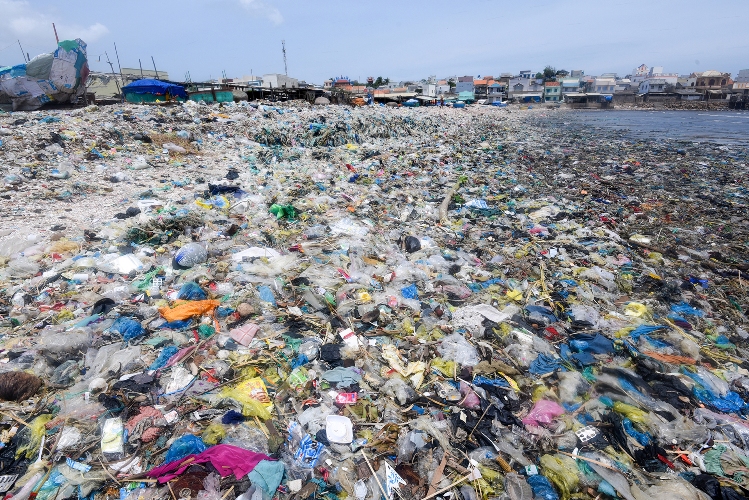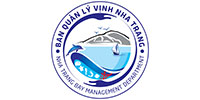Conservation – environment
In 2018, Khanh Hoa Provincial People’s Committee strengthened the direction and administration, a number of official documents were issued in time to serve the management. Continuously update and apply policies, laws and regulations on environmental protection promptly and in accordance with regulations. Documents issued by the Provincial People’s Committee in 2018 such as Decision No. 107 / QD-UBND dated January 9, 2018 approving the plan for prevention and response to environmental incidents in Khanh Hoa province in the period of 2018 – 2020; Directive No. 03 / CT-UBND dated January 22, 2018 on strengthening solid waste management; Decision No. 1872 / QD-UBND dated June 29, 2018, promulgating the Plan on tourism resource control and protection in combination with environmental protection and climate change impacts affecting tourism generation. the provincial; Decision No. 3080 / QD-UBND dated October 16, 2018 approving the Plan for collection, transportation and treatment of hazardous medical wastes in Khanh Hoa province; Decision No. 3760 / QD-UBND dated December 6, 2018 on the price of environmental monitoring and analysis activities ordered, assigned, planned and funded using the state budget by the Center for Natural Resources and Environment Monitoring Khanh Hoa school provides services and Plan No. 9096 / KH-UBND dated September 6, 2018 on the implementation of Action Program No. 23-CTr / TU of the Provincial Party Executive Committee, implementing Resolution No. 23- NQ / TW dated March 22, 2018 of the Politburo on the orientation to formulate national industrial development policy by 2030, with a vision to 2045.
In general, the environmental quality (air, surface water, sea water) in 2018 in Khanh Hoa province is within the permitted standards. There were no outstanding environmental incidents in the year, areas with high pollution risk such as Suoi Dau Industrial Park, Vietnam Sugar Joint Stock Company, Hazardous Waste Treatment Plant, etc. were closely monitored. . Promptly proactively prevented and warned about the quality of water environment for aquaculture areas in Van Phong Bay area about algal blooms, so that people can actively respond.
The coordination between state management agencies in charge of environment and local governments in the inspection, examination and handling of complaints and denunciations related to the environment has made positive changes. The socialization of investments in the environmental sector has been concerned, a number of projects have been implemented such as: Hazardous waste treatment plants, equitization of public service companies in the collection. , urban waste treatment …
Investment in environmental protection (environmental protection), waste treatment at production and tourism facilities in the province has also been increasingly paid attention. Establishments in cases where automatic monitoring systems have to be installed have also actively implemented the regulations. Although investment in the field of waste treatment socialization is still small but has been concerned, a number of projects such as: Hazardous waste treatment plants, equitization of public utility companies in the collection and treatment of urban waste in districts, towns, cities … Department of Planning and Investment has coordinated with other departments and localities to propose and advise the provincial People’s Committee to issue approving decisions. approving the list of projects calling for off-budget investment capital and advising to formulate criteria to select investors and conditions to attract and call for investment.
Annually, the provincial People’s Committee has allocated the provincial budget expenditure for environmental protection to ensure no less than 1% of the total state budget expenditure and gradually increase this proportion according to the province’s economic growth rate to serve the public. Communication and dissemination of legal documents, implementation of environmental monitoring tasks, pollution treatment support, waste management, etc. have made important contributions to the protection. environment of the province.
Through training and retraining courses on professional skills, it has contributed to improving the professional capacity of officials in charge of state management.
However, the environmental management in the province still faces many difficulties and limitations, some specific issues are as follows:
+ The relocation of production facilities causing environmental pollution in urban areas, cities and residential areas is still slow compared to the relocation plan (fish sauce production industry has no receiving place; centralized cattle and poultry slaughter in Nha Trang city and some localities which do not have a suitable place with the standards of the Ministry of Agriculture and Rural Development).
+ Waste management, especially rural waste, still has many problems, many landfills in rural areas are spontaneously formed, exposed, left untreated, prolonged inventory causing pollution, photos. affecting groundwater quality and soil environment quality.
+ The construction speed in urban areas is happening quickly, the management of construction wastes has not met, causing landscape loss, environmental pollution, affecting the daily life of people; Regarding domestic wastewater in some urban areas and concentrated residential areas along the coast, there is still a situation that domestic wastewater from households, service-providing businesses has not yet been treated or has not yet met the standards. standards discharging into the sea pollute coastal areas and affect tourist activities of the city causing disturbance in the mass media.
+ The inspection, detection and handling of violations by all levels and functional branches are lack of coordination, not resolute in handling; the supervision of the implementation of conclusions after inspection and examination is not serious, there are still repeated reminders but the establishments do not handle or fully handle. The awareness of law observance on environmental protection of some enterprises is still weak, some establishments have not operated the waste treatment system regularly and are still coping. Some factories and production facilities still use outdated production technologies, consume resources and energy; no investment in cleaner production technology and less investment in environmental protection.
+ Biodiversity conservation is still difficult due to many reasons: there is no staff with deep expertise, who is in charge of biodiversity management, and funding for investigation, survey and protection activities. The budget is relatively large, so the budget only meets part. Depletion of exploitation and destruction of natural resources still occurs for both terrestrial and aquatic animals and plants, biodiversity conservation awareness of management agencies at all levels and communities. limited; The management of protection and special-use forests assigned to manage forests and forestry land has not been invested and equipped according to actual needs. There have not been many policies and programs to encourage and motivate economic sectors to actively invest in developing investment and business in afforestation in the province. The NTP on rural water supply and sanitation since 2016 is no longer funded with non-business funding, so the implementation of updating and announcing the annual set of indicators for monitoring and evaluating rural water supply and sanitation as prescribed The Decision No. 2750 / QD-BNN-TCTL dated October 22, 2012 of the Ministry of Agriculture and Rural Development has not yet been implemented.
+ Regarding communication and propaganda: forms of propaganda about environmental protection are still not diversified. Community participation in environmental protection is still in form and movement, not yet forming a habit, turning consciousness into awareness and action, community models of environmental management are not much, not sustainable.






